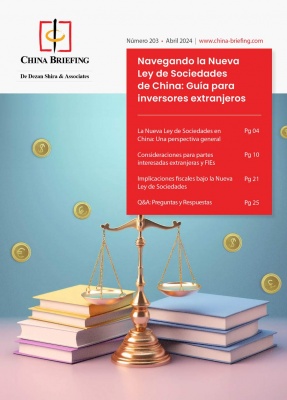Marriage Leave in China
In China, newlywed employees are entitled to marriage leave – extra days of paid leave.
Every region in China offers employees who get married at least three days of leave. Many other regions in China offer additional marriage leave, with Gansu and Shanxi – which offer 30 days – the most generous.
An employee is eligible for marriage leave once he or she has registered the marriage with the relevant authorities, including divorced individuals who get re-married and foreign employees.
China is relatively stingy when it comes to statutory annual leave. Employees with less than a year of work experience are not entitled to any leave, and those with 1-10 years of experience are entitled to just five days.
“Marriage is a very important event in Chinese culture,” said Jessica Huang, Senior Brand and Marketing Manager at Dezan Shira & Associates. “Marriage leave is a way for the government to recognize its significance.”
There are no concrete guidelines on the time period during which marriage leave must be used. Employers can include rules on marriage leave in their company handbook to determine how and when it can be used, and which documents must be submitted as proof. Usually, employers stipulate that marriage leave must be used within a year of the marriage registration.
![]() International Payroll & HR Solutions from Dezan Shira & Associates
International Payroll & HR Solutions from Dezan Shira & Associates
Previously, China offered additional “late marriage leave” as an incentive for couples to get married at an older age and postpone having children, as part of its One Child Policy. However, late marriage leave was abolished in late 2015 with the introduction of the Two Child Policy, except in Tibet.
Faced with a rapidly aging population, China is now encouraging couples to have children. Yet, marriage and birth rates are slowing. The government is expected to develop new policies to encourage population growth and counteract these demographic trends, including the relaxation of existing family planning laws.
The complete guide to marriage leave in China is shown below.
Marriage leave in China
| Marriage Leave in China | |
| Province | Marriage leave (in days) |
| Anhui | 13 |
| Beijing | 10 |
| Chongqing | 15 |
| Fujian | 15 |
| Gansu | 30 |
| Guangdong | 3 |
| Guangxi | 3 |
| Guizhou | 13 |
| Hainan | 13 |
| Hebei | 18 |
| Heilongjiang | 15+10* |
| Henan | 21+7* |
| Hubei | 3+ X (Extendable based on provincial measures) |
| Hunan | 3 |
| Inner Mongolia | 18 |
| Jiangsu | 13 |
| Jiangxi | 18 |
| Jilin | 15 |
| Liaoning | 10 |
| Ningxia | 10+3* |
| Qinghai | 15 |
| Shandong | 3 |
| Shanghai | 10 |
| Shaanxi | 3+10* |
| Shanxi | 30 |
| Sichuan | 3 |
| Tianjin | 10 |
| Tibet | 10** |
| Xinjiang | 23 |
| Yunan | 18 |
| Zhejiang | 13 |
*Granted to those who take pre-marital checkups, which involve being checked for any health conditions that will affect childbirth.
**In Tibet, the extra seven days of local marriage leave are granted to those who comply with the late marriage standards, i.e. 23 years old for females, and 25 years old for males.
About Us
China Briefing is published by Asia Briefing, a subsidiary of Dezan Shira & Associates. We produce material for foreign investors throughout Asia, including ASEAN, India, Indonesia, Russia, the Silk Road, and Vietnam. For editorial matters please contact us here, and for a complimentary subscription to our products, please click here.
Dezan Shira & Associates is a full service practice in China, providing business intelligence, due diligence, legal, tax, accounting, IT, HR, payroll, and advisory services throughout the China and Asian region. For assistance with China business issues or investments into China, please contact us at china@dezshira.com or visit us at www.dezshira.com
- Previous Article China to Sign Free Trade Agreement with Eurasian Economic Union on May 17
- Next Article Setting Up a Company in China





















